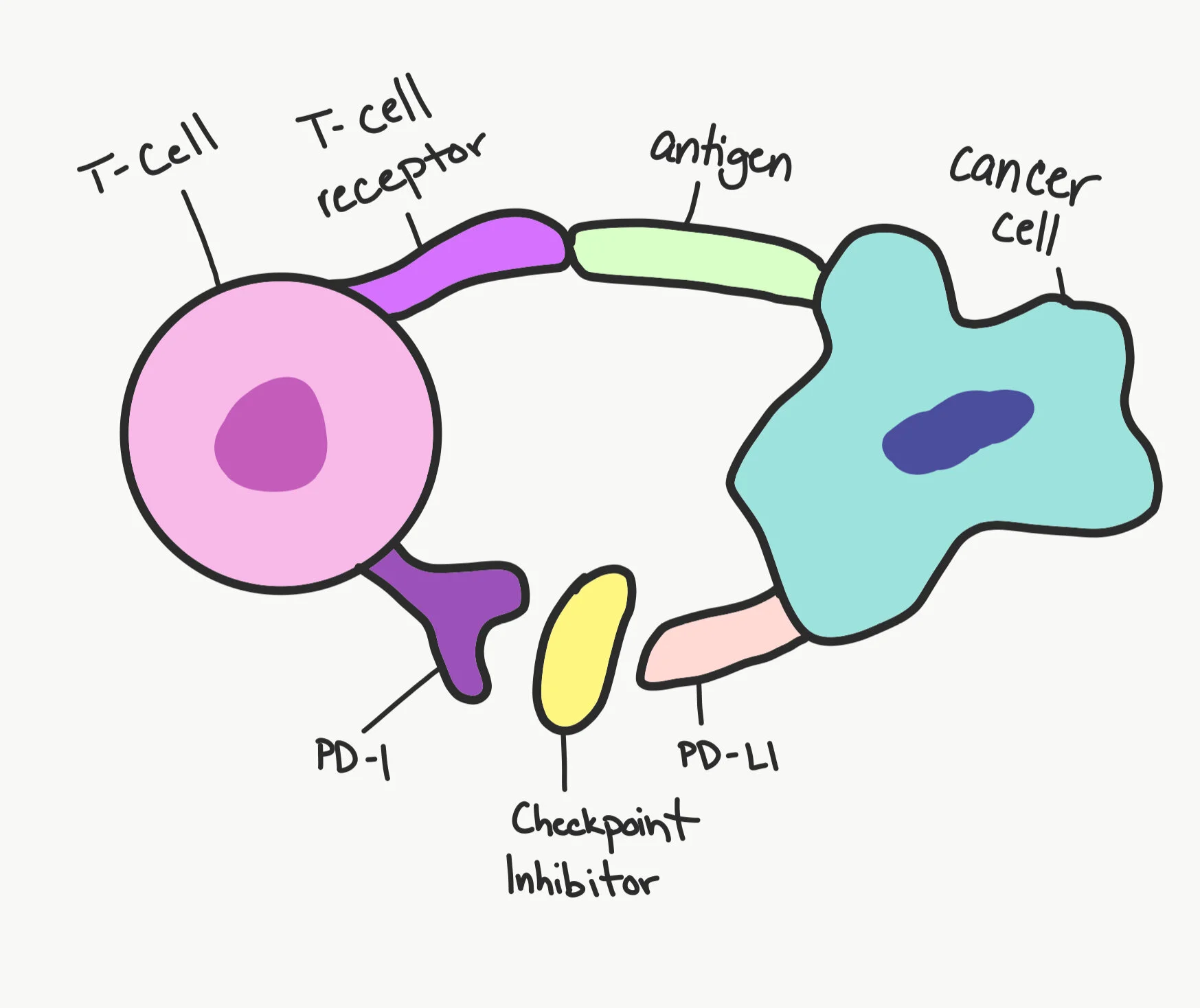What is immune checkpoint inhibitor therapy?
This article talks about a common form of immunotherapy called immune checkpoint inhibitor therapy.
The immune system is responsible for protecting the body from foreign substances.[1] Immunotherapy is a treatment that utilizes the body’s immune system to attack and kill cancer cells. One type of immunotherapy is immune checkpoint inhibitors.[2] Immune system checkpoints are molecules on immune cells that must be activated to trigger an immune reaction. Cancer cells often make use of these checkpoints to inactivate the immune response and avoid being attacked. Immune checkpoint inhibitors essentially removed the regulations of the immune checkpoints so that the immune system can target cancer cells at full force.[3]
There are different types of checkpoint inhibitors depending on the protein that is being targeted including PD-1 inhibitors, PD-L1 inhibitors, and CTLA-4 inhibitors. PD-1 is a protein located on T cells, and PD-L1 is a protein located on normal cells (both healthy and cancerous). When PD-1 and PD-L1 bind together, it tells the T cell not to attack the other cells. Cancer cells are often able to evade the immune system by having high levels of PD-L1. CTLA-4 is another protein located on T cells that can effectively stop the immune response.[3]
Monoclonal antibodies (mAbs) are man-made versions of antibodies, immune system proteins that can identify foreign substances (antigens) and trigger an immune reaction to kill them. mAbs can bind to antigens on cancer cells or other cells. When mAbs bind to immune checkpoint proteins, they can block the checkpoint and allow the immune system to function at full force.4 PD-1 inhibitors, PD-L1 inhibitors, and CTLA-4 inhibitors are all monoclonal antibodies and work by binding to PD-1, PD-L1, and CTLA-4, respectively.[3]
PD-1 and PD-L1 inhibitors have been used to treat several different types of cancer and are being studied to see their efficacy in treating other types of cancer. Ipilimumab (brand name: Yervoy) is a CTLA-4 inhibitor and is used to treat melanoma (skin cancer). This drug is also being tested to determine its efficacy in treating other types of cancer. The most common side effects of immune checkpoint inhibitors are diarrhea, rash, hormone level changes, kidney infections, and lung inflammation.[3]
References
1. Immune System https://my.clevelandclinic.org/health/articles/21196-immune-system (accessed Jun 16, 2021).
2. Immunotherapy https://www.cancer.org/treatment/treatments-and-side-effects/treatment-types/immunotherapy.html (accessed Jun 16, 2021).
3. Immune Checkpoint Inhibitors and Their Side Effects https://www.cancer.org/treatment/treatments-and-side-effects/treatment-types/immunotherapy/immune-checkpoint-inhibitors.html (accessed Jun 17, 2021).
4. Monoclonal Antibodies and Their Side Effects https://www.cancer.org/treatment/treatments-and-side-effects/treatment-types/immunotherapy/monoclonal-antibodies.html (accessed Jun 16, 2021).

